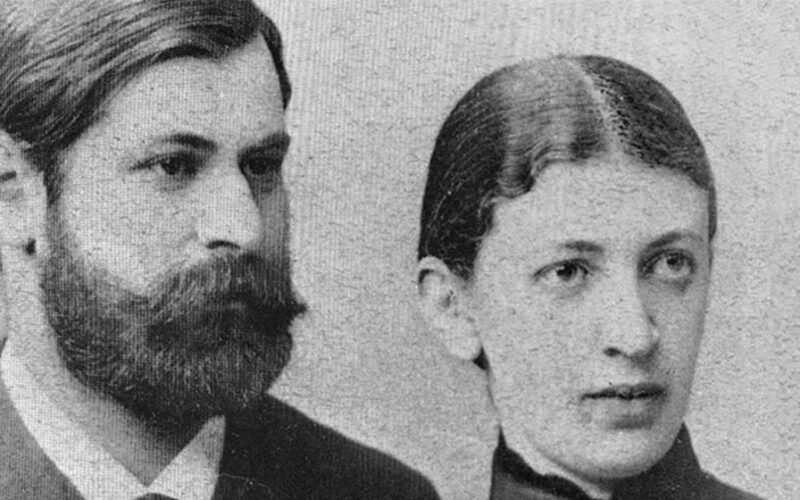Martha Bernays, born in Hamburg, Germany, on July 26, 1861, is best known as the wife of Sigmund Freud. But Martha had her own qualities and strength of character. As the steady partner of a revolutionary thinker, Martha enabled Freud to pursue his intellectual interests while raising a large family and upholding the values of loyalty, intellect, and patience.
Background and Education
Martha Bernays grew up in a respected Jewish family. She was the daughter of Berman Bernays, a scholar and businessman, and Emmeline Philipp, both of whom valued education and intellectual growth. Her paternal grandfather, Isaac Bernays, was a Hamburg rabbi whose work and beliefs in modernizing Judaism shaped her family’s cultural outlook. Martha grew up valuing scholarly work as well as moral values, and from a young age took an interest in literature, history, and religious studies.
Unlike Freud, whose academic path was more robust, Martha’s educational options were constrained by her time. Yet her intellectual curiosity and engagement with current thought later made her the ideal companion for Freud, whose ideas were challenging and complex. This willingness to learn allowed Martha to participate in Freud discussions, supporting his work with her quiet insights.

Courtship and Marriage to Sigmund Freud
In 1882, Martha met Sigmund Freud in Vienna. They had their share of difficulties in courting though. Freud was still early in his career and struggled with financial stability, which delayed their marriage. For four years, they maintained a long-distance relationship, communicating through exchange of letters. In this correspondence, Freud often discussed his early theories with Martha, who responded by showing her faith in his vision and being an emotional support during hard times.
They eventually married in 1886, and Freud benefited significantly from their union. Martha created an enabling home environment for Freud to work on his research and writing. While Freud developed his theories, Martha embraced the roles of a mother and household manager, giving Freud freedom to work. They would go on to have six children, including Anna Freud, who later became a prominent figure in psychology.
A Devoted Partner and Family Matriarch
Martha lived for her family and her husband’s work. She managed the household, finances, household staff, and kept the children in check. Her quiet strength helped the family weather financial and public scandals and social upheavals of the early 20th century. Freud’s theories on psychoanalysis were sometimes controversial, but Martha was always supportive and bore the weight of his famous career.
Legacy and Influence
Though history remembers Martha Bernays simply as “Freud’s wife,” her influence was far from minor on his life and work. She represented a solid foundation on which Freud could build his volatile intellectual journey, allowing him to concentrate on theories that would change psychology. Martha’s deep personal strength, loyalty, and adaptability were essential to Freud’s work and legacy.










